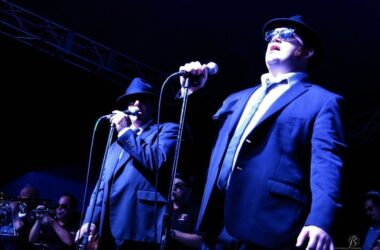 Commentary
Commentary
Inside the First Amendment
By Charles C. Haynes
First Amendment Center senior scholar
During a recent trip to Tulsa, Okla., I asked a roomful of high school seniors if they wanted prayer at their graduation. Most said yes, with the notable exception of the student who would actually speak at the ceremony — the class valedictorian.
“I’m a Hindu,” she said, “and I just don’t think it would be right for me to impose my prayers on other people at a school event that’s supposed to be for everybody.”
To borrow an image from religious-liberty advocate Roger Williams, this is one young American who comes to the helm remembering what it’s like to be in the hatches. After years of listening to prayers of the majority faith, she went on to explain, she wasn’t going to use her moment at the podium to turn the tables.
Of course, it’s entirely possible that under certain conditions this Tulsa valedictorian could legally offer Hindu prayers if she wanted to do so. Although the Supreme Court ruled in 1992 in Lee v. Weisman that school-sponsored graduation prayers are unconstitutional, the law is still somewhat unsettled on where to draw the First Amendment line on student religious expression at graduation.
Relying on lower court decisions, the U.S. Department of Education put out guidance in 2003 that opens the door to prayer by a student speaker, as long as the student is selected on the basis of “genuinely neutral” criteria (e.g., best academic record or class president) and retains “primary control” over the content of the speech.
In other words, school officials would have to create a kind of free-speech forum at graduation during which time a student speaker is free to include religious or anti-religious expression. Not surprisingly, many public schools are wary of taking this risk.
While many school districts work hard to comply with current law, some continue to ignore court decisions and Department of Education guidelines by inviting clergy to offer prayers at graduation. And every May, their defiance of the law triggers new conflicts and lawsuits across the nation.
Earlier this month, for example, high school senior Jacob Davis and 44 classmates in Ross County, Ohio, petitioned school officials asking for an end to clergy-led prayer at graduation. Jacob, who identifies himself as a Wiccan, has gotten considerable push-back from a community unhappy about abandoning a long-standing tradition.
But the law is the law. Last week the principal cancelled the clergy prayer at the upcoming ceremony, fully 17 years after the Supreme Court ruled the practice unconstitutional.
Now the principal says he might ask students to offer a prayer instead, an approach apparently used by other schools in the region. But as lower courts have made clear, arranging for a student to deliver a prayer doesn’t solve the First Amendment problem. School-sponsored prayer remains school-sponsored prayer — even when a student is selected to give it.
Ross County school officials can’t arrange for students to pray. All they can do is provide students with the aforementioned free-speech opportunity, as long as they don’t use a wink and a nod to encourage prayer. That means, of course, living with the result. Any school that takes this route would be wise to put a disclaimer in the program making clear that the speech is the student’s and not the school’s.
Right now the free-speech model is popular among conservative Christians, especially in school districts where people can pretty much count on student speakers to pray the majority’s prayers. I predict, however, that the enthusiasm for this approach will fade as soon as students start praying prayers the majority doesn’t want to hear — or expressing anti-religious ideas.
If school officials want to solemnize the occasion without hiring a lawyer, a neutral moment of silence is the best solution. Religious freedom is all about the right of each person to pray (or not) according to the dictates of his or her own conscience.
After so many decades of angry shouting matches and divisive court battles, we could all use a little silence.
Charles C. Haynes is senior scholar at the First Amendment Center, 555 Pennsylvania Ave., N.W., Washington, D.C. 20001. Web: firstamendmentcenter.org. E-mail: [email protected].








